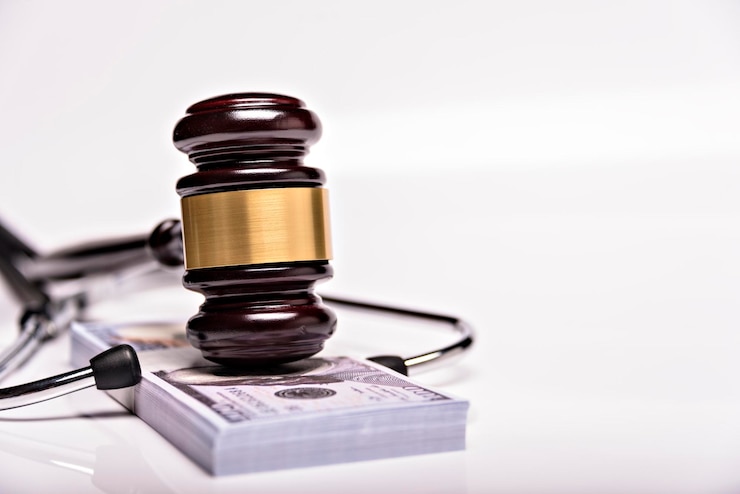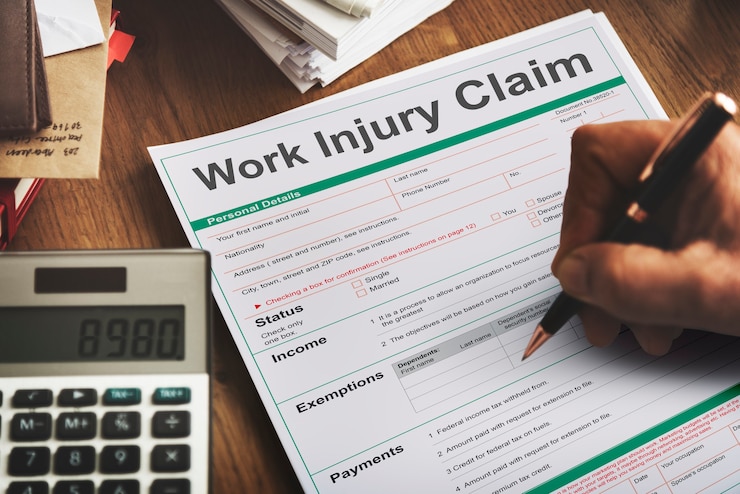Personal injury is usually a legal term referring to a variety of injuries to the person’s body, emotion, or reputation. According to the common law jurisdictions, personal injury is used to refer to a type of tort lawsuit where the victim can claim a lawsuit for an inflicted injury.
The person who has suffered a significant amount of personal harm can claim a lawsuit against the perpetrator.
The lawsuit proceeds against the perpetrator who has been careless enough to cause such personal injury or harm to the victim. The defendant can be strictly liable regardless of any intention.
Five Types of Personal Injury Claims
Personal injury claims can be bodily injuries or non-bodily injuries. Bodily injuries are mostly caused by accidents or inflicted accidents, and non-bodily injuries are harm caused by psychological factors like emotional distress, false accusation, defamation, and more.

1. Automobile Injuries
According to the data provided by the National Highway Traffic Safety Administration (NHTSA), almost 9,560 people suffered automobile injuries in the first quarter of 2022.
The ratio of automobile injuries has increased to almost 7% from the amount of data produced in 2021.
The victims of crime injury claim compensation for the injury they have succumbed to.
Once you have suffered an injury from an accident, you must contact a lawyer regardless of any situation. You are advised to contact a lawyer regardless of the nature of the accident.
In most cases, it becomes hard to prove a defendant is guilty of drunk driving or speeding; in such a scenario, you need a well-experienced personal injury attorney to support you.
Expert personal injury attorneys or crime victim attorneys can easily negotiate through trials and provide detailed evidence and leverages to establish the case against the defendant.
2. Medical Malpractice
Medical malpractice is another personal injury case where doctors take advantage of patients with a lack of knowledge. According to the National Practitioner’s Data Bank (NPDB), there are more than 60,000 cases of medical malpractice inflicted on patients in the U.S.
Doctors responsible for imposing medical malpractice on patients can cause permanent damage to the patient’s body. Medical malpractice has also led to severe cases of death. In this case, the accused doctors can be held responsible and liable for practicing unlawful activity.
If your doctor is responsible for misdiagnosis, medication errors, anesthesia errors, surgical errors, and childbirth-related complications, then they can be held liable on legal grounds.
3. Workplace-Related Injuries
According to the data in the United States, almost 4,764 and 5,333 people succumbed to fatal workplace-related injuries, respectively, in 2020 and 2019.
Workers from the lower economic section undergo insecure workplace structures.
Most often, businesses hiring labor from the socio-economically lower section of society do not completely ensure a safety blanket for the employees, such as laborers working the window cleaning job on high-rise buildings or skyscrapers, wall painters, mechanics, and more.
If you are suffering an injury due to the workplace environment, then it is advisable to seek personal injury attorneys or crime victim attorneys as soon as possible. It is advisable to create a layout of the unsafe practices with detailed information along with your co-worker who might have also suffered an injury.
4. Assault Cases
Personal injuries are not always related to bodily factors sometimes, they can also be psychologically inflicted. In case of assaults or harassment, victims can go through a tremendous amount of pain due to the disruption of their mental stability.
Assault cases can result in harming both mental and physical stability. According to data in the United States, there were almost 246.8 assault cases per 100,000 population in 2018. It is advisable that you reach out to the crime victim attorneys as soon as possible once you’ve been assaulted.
Sometimes, assault cases inflicting mental trauma are hard to prove in court. That’s why detailing all the information about the assault, and cooperating with the victim’s attorney is highly preferable.
5. Products Liability
Suppose you’ve bought a product and you find that the product has manufacturing errors or is damaged, then you can claim product liability. This includes manufacturing defects of the component parts, assembling errors, and fraud of the wholesaler or store owner.
A defective product can harm a consumer’s economy, and thus they can claim a product liability suit. Crime victim attorneys can settle a product liability case on the basis of negligence, warranty breach, data breach, and parts removal.
The United States Department of Commerce established the Model Uniform Product Liability Act and has been handling the product liability charges since there is no federal product liability law functioning in the United States.
Conclusion
An experienced attorney can help you deal with legal advice and support you throughout your legal proceedings.
A professional attorney has a kind of negotiation skills from several trial experiences which will ensure your win against the perpetrator in court.
Thus, it is important for you to choose an attorney on the basis of their previous experience dealing with personal injury claims.
Additionals:






















